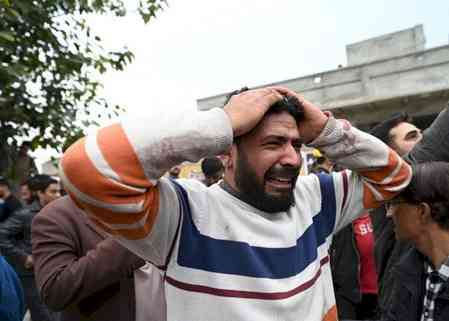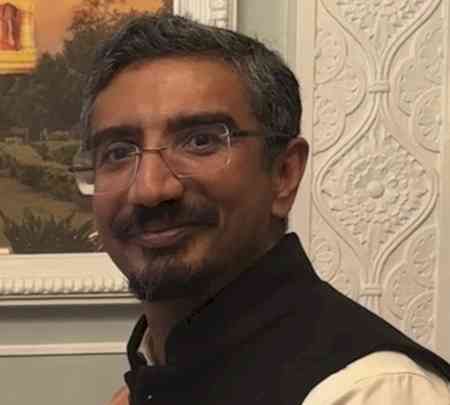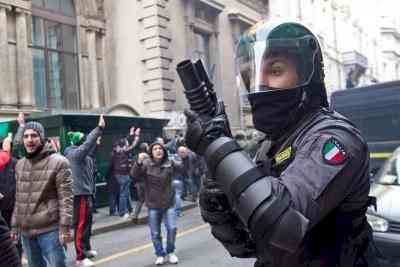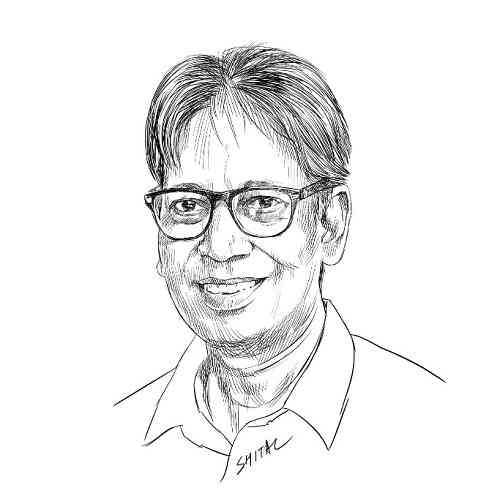Indian citizens advised to defer travel to Nepal until situation stabilises: MEA
India on Tuesday advised its citizens to defer their travelling plans to Nepal until the situation stabilises in the neighbouring country following the death of 19 people in widespread protests which also resulted in the resignation of Prime Minister K P Sharma Oli.
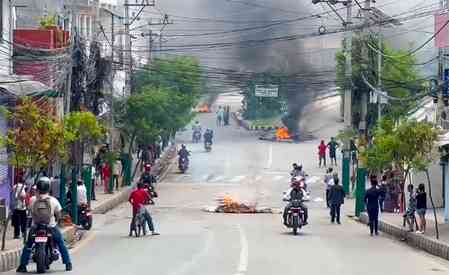
New Delhi/Kathmandu, Sep 9 (IANS) India on Tuesday advised its citizens to defer their travelling plans to Nepal until the situation stabilises in the neighbouring country following the death of 19 people in widespread protests which also resulted in the resignation of Prime Minister K P Sharma Oli.
"In view of the developing situation in Nepal, Indian citizens are advised to defer travel there until the situation has stabilised. Indian citizens presently in Nepal are advised to shelter in their current places of residence, avoid going out onto the streets and exercise all due caution," read an advisory issued by the Ministry of External Affairs (MEA) late Tuesday afternoon.
"They are also advised to follow local safety advisories from Nepal authorities as well as the Embassy of India in Kathmandu. In case of any assistance required, please call the Embassy of India, Kathmandu, on the helpline numbers," the MEA added.
Earlier in the day, the Indian government stated that it is closely monitoring the developments in Nepal since yesterday and are deeply saddened by the loss of many young lives.
"Our thoughts and prayers are with the families of the deceased. We also wish speedy recovery for those who were injured. As a close friend and neighbour, we hope that all concerned will exercise restraint and address any issues through peaceful means and dialogue," read a statement issued by the MEA.
It added: "We have also taken note that authorities have imposed curfew in Kathmandu and several other cities of Nepal. Indian nationals in Nepal are advised to exercise caution and adhere to the steps and guidelines issued by the Nepali authorities."
Meanwhile, faced with intense pressure from Gen-Z protests, Nepal's Prime Minister K P Sharma Oli resigned from his post on Tuesday. Oli submitted his resignation letter to President Ram Chandra Poudel, citing the abnormal situation in the country as protests intensified against his rule throughout the country.
Oli was elected Prime Minister on July 14, 2024, as per a consensus reached with Nepali Congress, the largest party in the parliament.
As protests intensified on the second day following the killing of 19 protestors on Monday, the ruling coalition appeared to have fractured one after another with ministers particularly belonging to Nepali Congress resigning and putting further pressure on the government to quit.
General Secretaries of ruling Nepali Congress, Gagan Thapa and Bishwo Prakash Sharma had earlier urged Prime Minister Oli to resign and pave the way forward.
Thapa and Sharma said in a statement that the relevance of the seven-point agreement reached between the Communist Party of Nepal (Unified Marxist–Leninist) and Congress during the formation of the government was no longer valid.
It is not immediately clear what course Nepal's politics would take now as all the lawmakers from the fourth largest party Rastriya Swatantra Party also resigned in masses demanding an interim government.
Enraged by the killing of so many people during the first day of the protests organised by the Gen-Z demanding accountability for corruption and social media ban, protestors throughout the country started to attack houses of leaders and government buildings.
On Tuesday, the protestors stormed into the parliament building at Baneshwor in Kathmandu and set the building on fire. The protestors had made unsuccessful attempts to damage the building even on Monday which led to strong police response leading to the death of several people.
They also entered the Singh Durbar, the main administrative centre of the Nepal government and torched the main gate.
The party headquarters of the ruling Communist Party of Nepal (Unified Marxist Leninist) or CPN (UML) and Nepali Congress in the Kathmandu Valley were also defaced and set on fire.
Torching and vandalism in the government offices in many parts of the country have also been reported by the local media.
Similar cases of vandalism and torching were also reported in several government offices of the nation.
After Home Minister and Agriculture Minister, Minister for Health and Population Pradip Poudel and Minister for Youth and Sports Teju Lal Chaudhary also announced their resignation from their respective positions, expressing regret over the use of force against the Gen-Z protestors.
Videos of the torching of Prime Minister Oli's house at Balakot in Kathmandu's Bhaktapur also went viral on social media. The protestors also forcefully entered Singh Durbar, the main administrative centre of the government.
--IANS
/as



 IANS
IANS 
